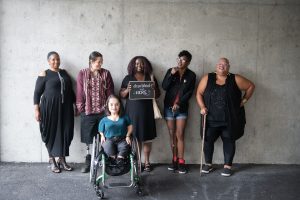5 Ableism/Disablism in Higher Education
Ableism in higher education disadvantages and discriminates against disabled students and staff. Ableist ideas and practices are present in all parts of educational institutions and need to be addressed. To eliminate ableism in these settings, we need to figure out where, how, and why it is ingrained in our norms and practices.

Ableism in Postsecondary Educational Practices
It’s not surprising that ableist practices, which discriminate against people with disabilities, are considered normal in higher education. The education system is often designed with a specific type of learning in mind and reinforces certain ideas about what is “normal.” As a result, people with disabilities are disadvantaged and excluded in educational settings through acts of ableism.
It is often thought that barriers and discrimination faced by people with disabilities are caused by the individual rather than being built into the foundations of higher education. For example, accessibility and disability services often focus on the individual requesting access rather than the larger barriers that prevent access (Gillies & Dupuis, 2013). These services often rely on medical language and diagnoses, which reinforces the idea that disability is a personal medical issue rather than a problem with the education system (Saltes, 2020). This individualized and medicalized approach to disability in higher education means that “disabled individuals do not always fit” (Waterfield, Began, & Weinberg, 2018). Additionally, accommodations, which are meant to make education more accessible, do not address the root causes of ableism and often require students to advocate for more inclusive options. By not recognizing the systemic nature of ableism in education, we put the burden on those who are already experiencing discrimination to fix the problem.
Ableism and Inaction
“Ableist apologia” is a term used by Dolmage (2017) to describe the belief that higher education is unfair to people with disabilities and that there is nothing we can do about it. This belief is often expressed through statements or attitudes that try to distance the speaker from any responsibility for the way higher education unfairly favors certain students over others based on disability. These beliefs help to keep the unfair treatment of people with disabilities in place and make it harder to change the way education is offered. When we say we cannot change something because “that’s the way it’s always been done” or “we can’t offer certain resources because of XYZ,” we are not taking responsibility for trying to fix the unfair treatment of people with disabilities in education.
For an in-depth perspective, please read Jay Timothy Dolmage’s Academic Ableism Disability and Higher Education that is available in open access.
Ableism in Education
REFERENCES
Some parts of this article were remixed from the article Ableism/Disablism in Postsecondary Teaching and Learning Contexts by Niagara College licensed under CC BY 4.0 International. The references below relate to this material.
Dolmage, J. (2017). Academic ableism: Disability & Higher Education. Michigan: University of Michigan Press.
Gillies, J., & Dupuis, S. L. (2013). A framework for creating a campus culture of inclusion: A participatory action research approach. Annals of Leisure Research, 16(3), 193-211.
Saltes, N. (2020). Disability barriers in academia: An analysis of disability accommodation policies for faculty at Canadian universities. Canadian Journal of Disability Studies, 9(1).
Waterfield, B., Beagan, B. B., & Weinberg, M. (2018) Disabled academics: A case study in Canadian universities. Disability & Society 33(3), 327-348.

